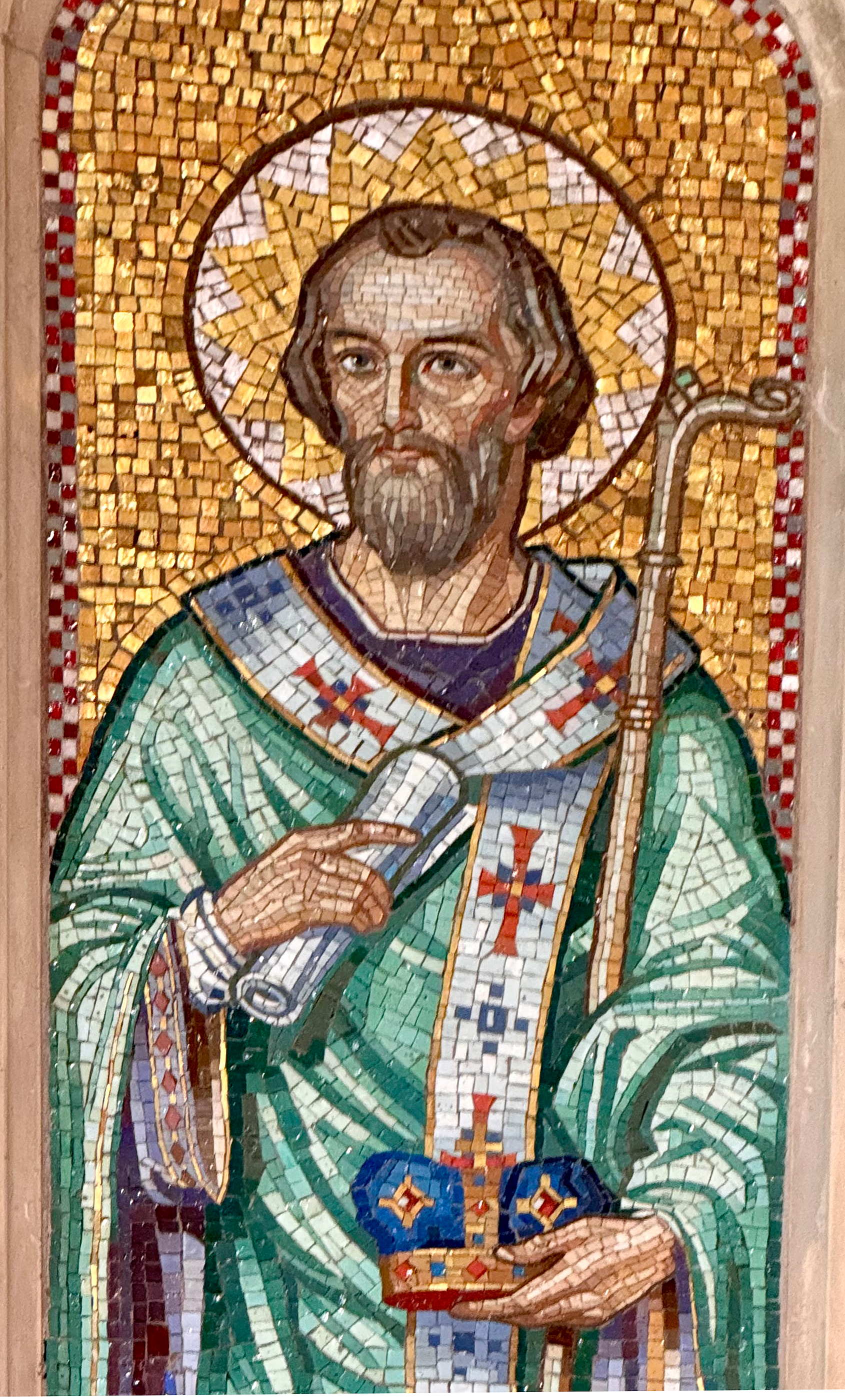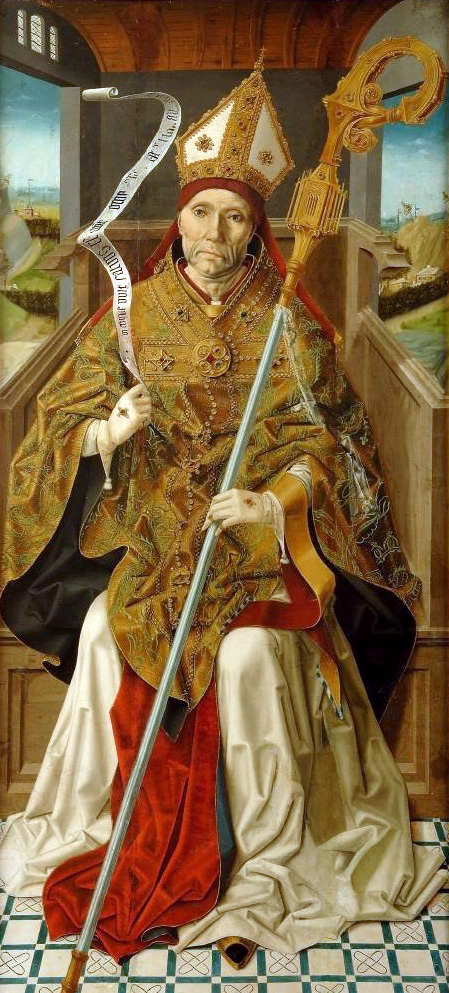Report on St. Athanasius
Introduction
St. Athanasius (c. 296–373 AD) was one of the most significant and influential figures in early Christian history, especially known for his role in the development of Christian doctrine, his staunch defense of Nicene orthodoxy, and his fierce opposition to Arianism. As the Bishop of Alexandria, a prominent theologian, and a prolific writer, Athanasius played a pivotal role in shaping the Christian Church during the 4th century. His theological contributions, particularly in relation to the nature of the Trinity and the full divinity of Jesus Christ, earned him a place as one of the greatest Church Fathers. Athanasius’s life, filled with exile, theological battles, and unwavering commitment to the Christian faith, has made him a central figure in both Eastern Orthodox and Roman Catholic traditions.
Early Life and Education
Athanasius was born around 296 AD in Alexandria, Egypt, into a Christian family. His exact birth date is uncertain, but he is believed to have been born into a well-educated and devout Christian household. Alexandria, at the time, was one of the largest cities in the Roman Empire and a key center of early Christian theological and intellectual activity.
Athanasius received an excellent education in classical literature, philosophy, and rhetoric, which were common in the intellectual circles of Alexandria. As a young man, he became close to Alexander, the Bishop of Alexandria, who mentored him in Christian teachings. His deep commitment to the Christian faith was evident early on, and he was ordained as a deacon by Alexander in the early 320s. During this time, Athanasius became well-acquainted with the theological debates surrounding the nature of Christ and the Trinity.
Arian Controversy and Defense of Nicene Orthodoxy
The central theological challenge of Athanasius’s life was his opposition to Arianism, a heretical movement that denied the full divinity of Jesus Christ. Arianism, named after the priest Arius, posited that the Son (Jesus) was created by the Father and was therefore not of the same essence (homoousios) as the Father. This teaching contradicted the Nicene Creed, established at the First Council of Nicaea in 325 AD, which declared that the Son was “of the same essence” as the Father.
Athanasius became one of the leading defenders of the Nicene Creed and the orthodox Christian belief in the full divinity and consubstantiality (homoousios) of the Son. His theological writings, most notably his Contra Gentes (Against the Gentiles) and De Incarnatione (On the Incarnation), strongly emphasized that Christ was truly divine and equal to the Father. Athanasius argued that only a divine Savior could reconcile humanity with God, and that Christ’s full divinity was essential to the doctrine of salvation.
In 328 AD, Athanasius became the Bishop of Alexandria following the death of his mentor, Bishop Alexander. Shortly after becoming bishop, Athanasius found himself at the center of a theological and political storm, as the Arian controversy continued to spread throughout the Roman Empire. The Arian faction, backed by powerful bishops and even the imperial court, sought to undermine the Nicene Creed and replace it with a more “moderate” doctrine that subordinated the Son to the Father.
Exiles and Struggles
Athanasius’s defense of Nicene orthodoxy was not without consequence. Over the course of his life, he was exiled five times, often for long periods, due to his opposition to Arianism and his refusal to conform to imperial pressures. These exiles, imposed by both the Arian factions within the Church and the Roman emperors who supported them, were a defining feature of Athanasius’s ministry.
His first exile came in 335 AD when he was exiled by Emperor Constantine after a synod at Tyre, which accused him of various charges, including charges of cruelty and dishonesty (though these charges were politically motivated). Athanasius returned to Alexandria after Constantine’s death, but he was exiled again in 339 AD during the reign of Emperor Constantius II, who was a supporter of Arianism. Athanasius spent several years in exile, during which he traveled widely, including to Rome and the western part of the Empire, to rally support for the Nicene faith.
Despite the political and personal hardships he faced, Athanasius remained unyielding in his commitment to the Nicene Creed. He repeatedly argued that the true Church could not compromise on the divinity of Christ, as such a compromise would undermine the very heart of the Christian faith and the doctrine of salvation.
Athanasius’s exile was not only a period of suffering but also a time of theological reflection and writing. During his periods of exile, Athanasius continued to write extensively, producing works that would become foundational for later Christian theology. His treatise De Incarnatione, for example, was a seminal work that explained the necessity of the Incarnation for salvation, reinforcing the belief that Christ, as fully God and fully human, was the only true Savior.
Theological Writings and Contributions
Athanasius’s writings were critical in shaping the course of Christian theology, particularly in relation to Christology and the doctrine of the Trinity. His defense of the Nicene Creed and his refutation of Arianism were his most significant contributions. Some of his major theological works include:
1.Contra Gentes (Against the Gentiles): This work was a defense of Christianity against pagan philosophy, arguing that Christianity was the true path to knowledge of the divine. It was also a defense of the Incarnation, showing that the Word of God became flesh to save humanity.
2.De Incarnatione (On the Incarnation): One of his most influential works, this treatise explains why it was necessary for God to become incarnate in Jesus Christ. Athanasius argues that the Word (the Son of God) became human in order to redeem human beings, and that this could only be done through the full divinity and full humanity of Christ.
3.Adversus Arianos (Against the Arians): A series of writings where Athanasius directly refutes the teachings of Arius and the Arian heresy. He emphasizes that Christ is of the same substance (homoousios) as the Father and that the Arian doctrine undermines the very nature of Christian salvation.
4.Letters to Serapion: These letters are a theological exchange between Athanasius and his fellow bishop Serapion, defending the divinity of the Holy Spirit and the Nicene understanding of the Trinity.
5.Life of Anthony: Athanasius also wrote the Life of Anthony, a biography of St. Anthony the Great, one of the first Christian monks. This work had a profound impact on the development of Christian monasticism, particularly in the West, and helped to spread the ideals of asceticism and monastic life.
Legacy and Canonization
Athanasius’s defense of the Nicene Creed and his theological writings played a crucial role in the defeat of Arianism and the establishment of orthodox Christian doctrine. The First Council of Nicaea in 325 AD and the subsequent Council of Constantinople in 381 AD were key milestones in the affirmation of the Nicene Creed and the recognition of the full divinity of Christ. Athanasius’s unwavering support for the Nicene faith, despite great personal and political opposition, has earned him the title of “Champion of Orthodoxy.”
He is revered as a saint in both the Eastern Orthodox Church and the Roman Catholic Church. His feast day is celebrated on May 2 in the Eastern Church and on May 15 in the Western Church. He is also recognized as a Doctor of the Church, a title given to saints whose writings have had a lasting impact on Christian doctrine.
Conclusion
St. Athanasius stands as one of the most influential figures in the history of Christian theology. His staunch defense of the Nicene Creed, his theological writings, and his tireless opposition to Arianism helped shape the doctrine of the Church in the 4th century and beyond. Despite facing significant personal and political challenges, including multiple exiles, Athanasius remained steadfast in his commitment to the divinity of Christ and the orthodox faith. His legacy as a theologian, bishop, and defender of the Nicene Creed continues to inspire and shape Christian theology today.






